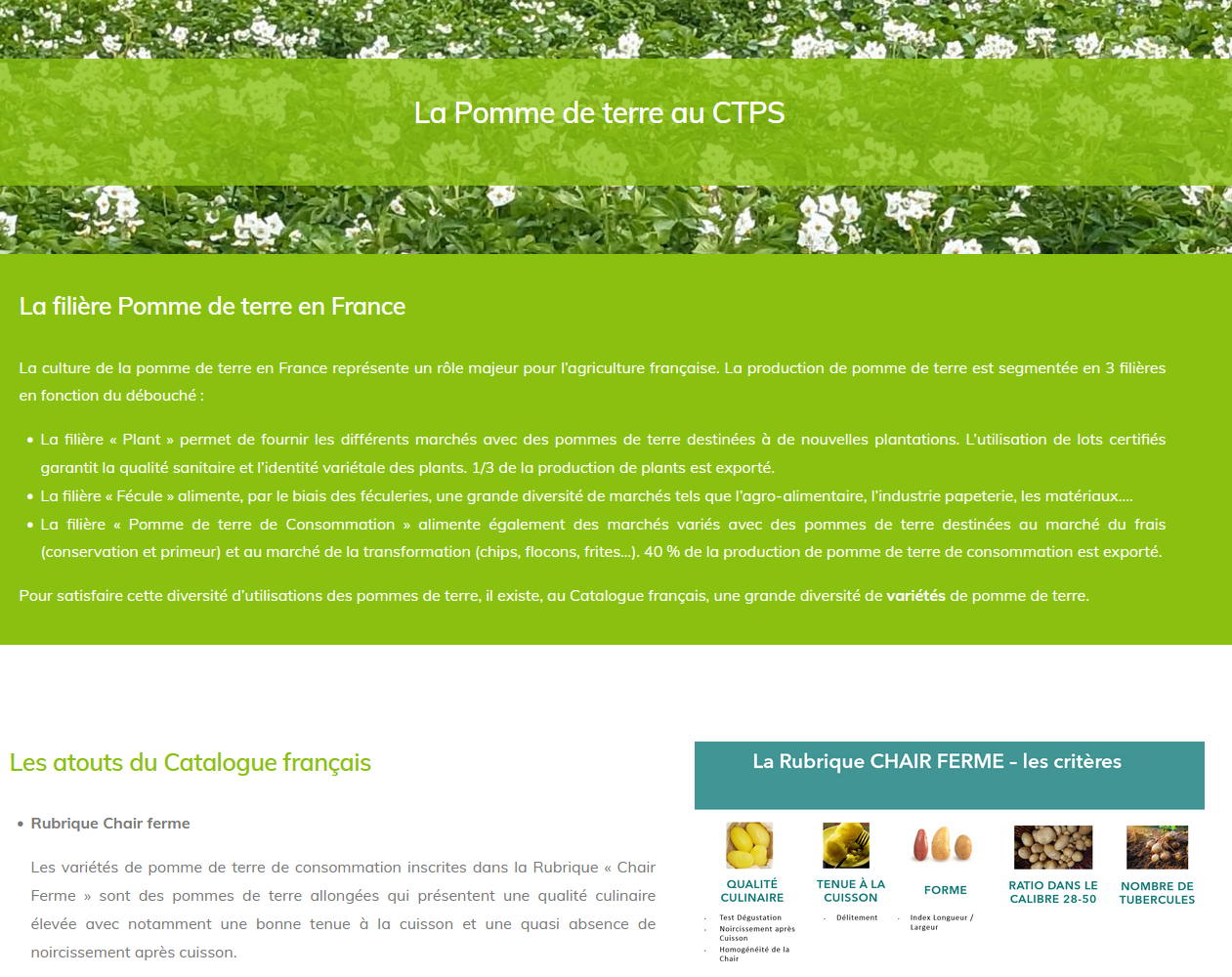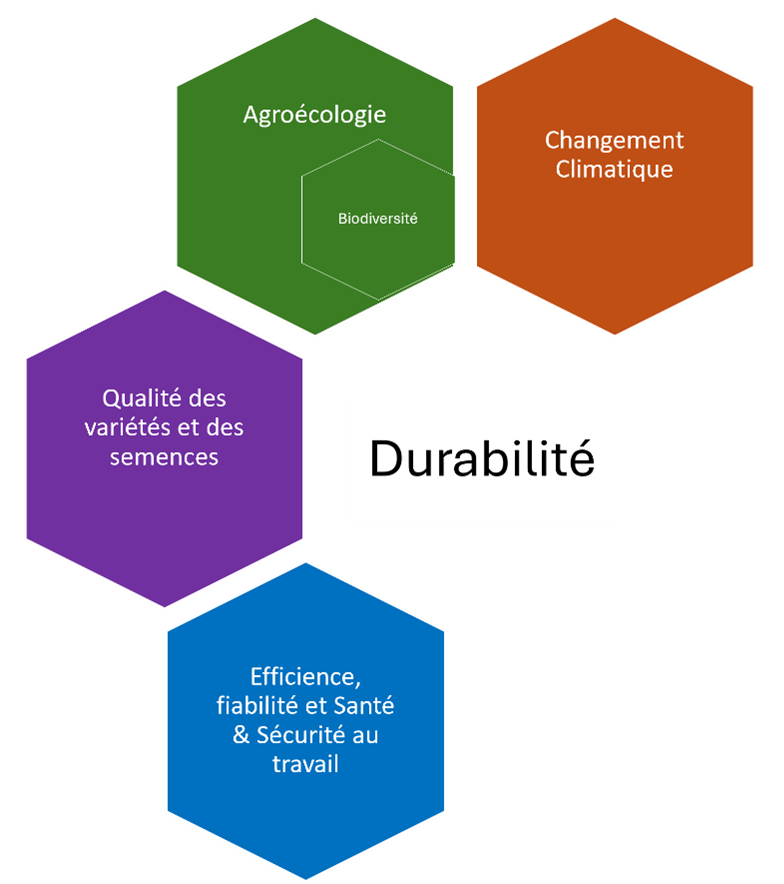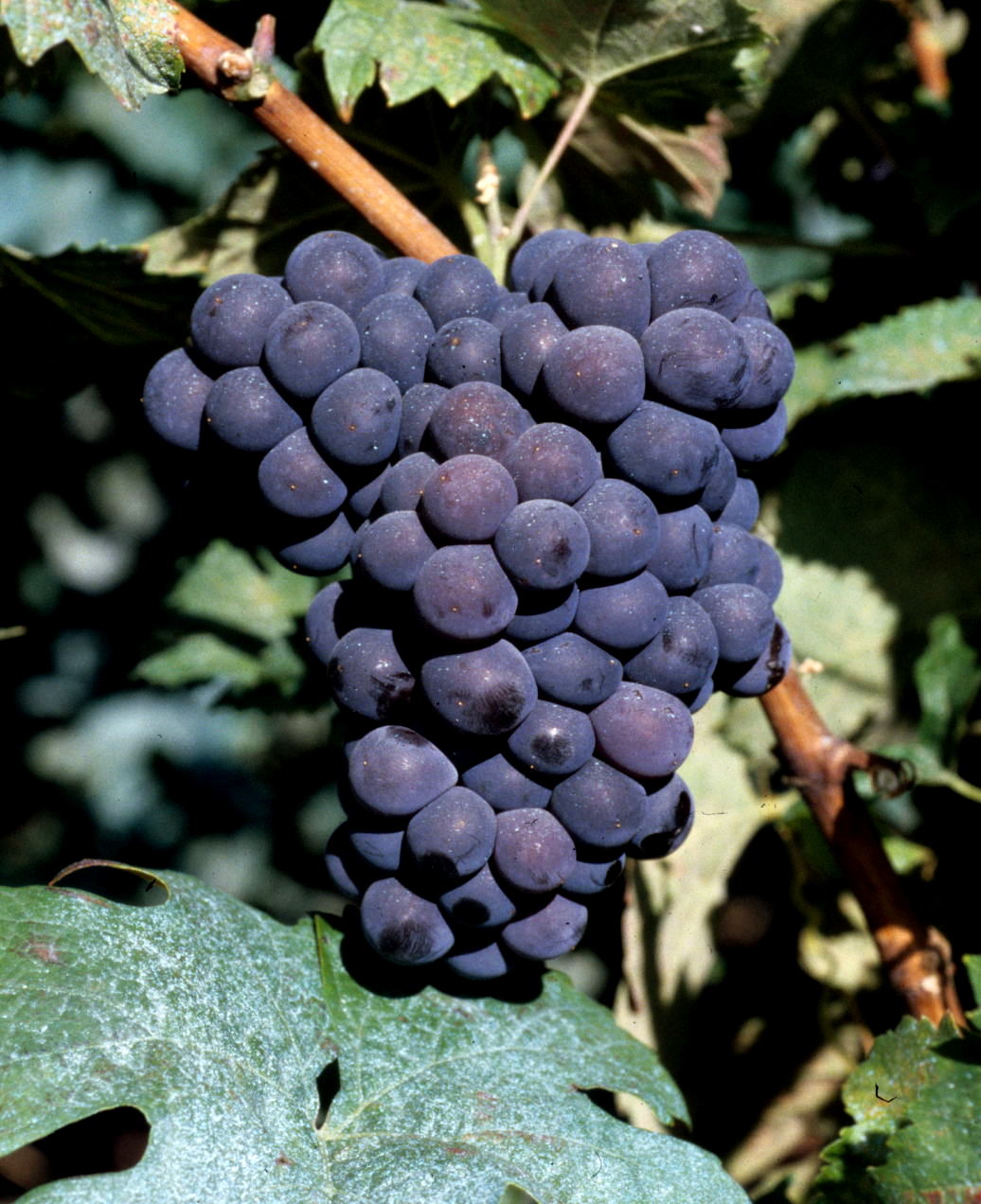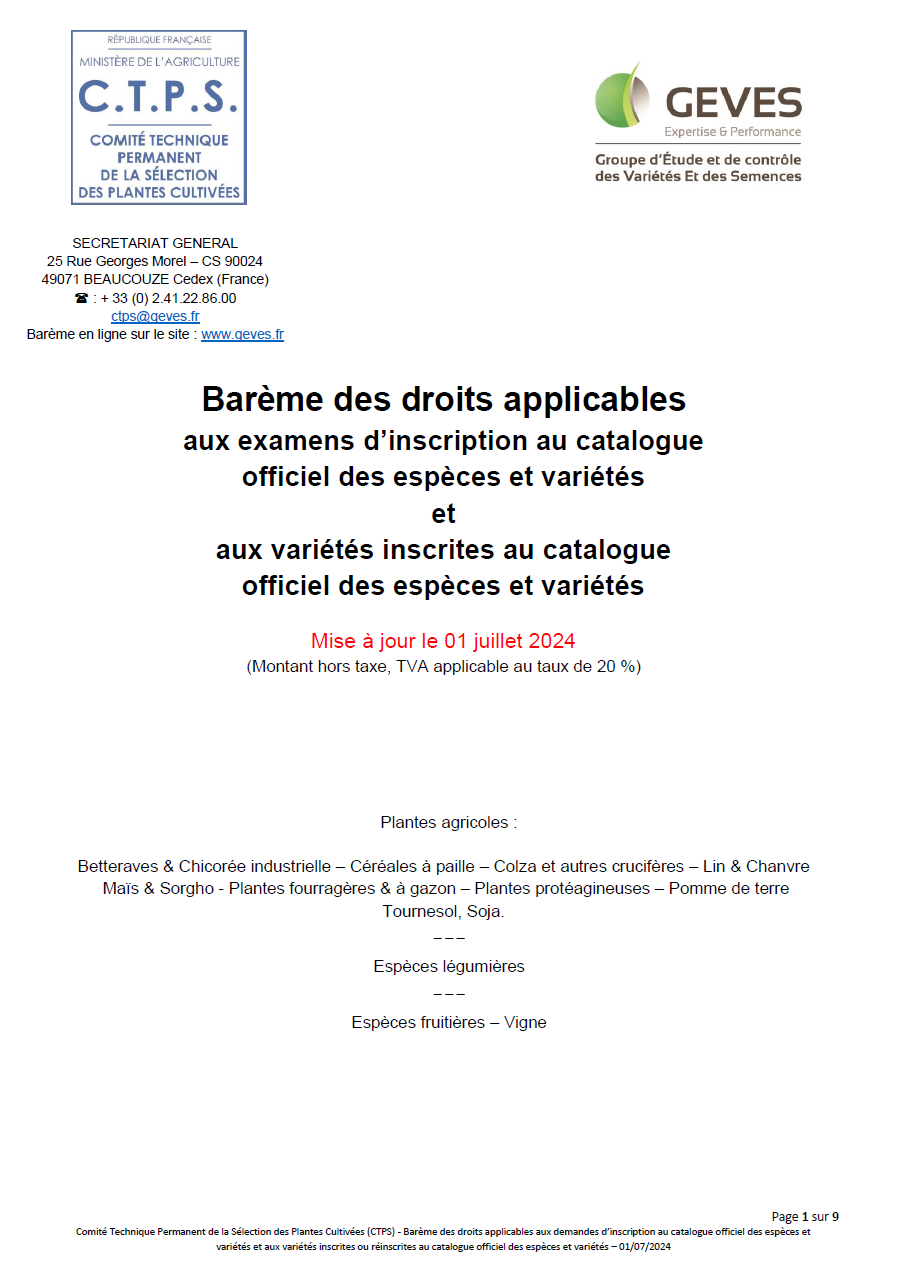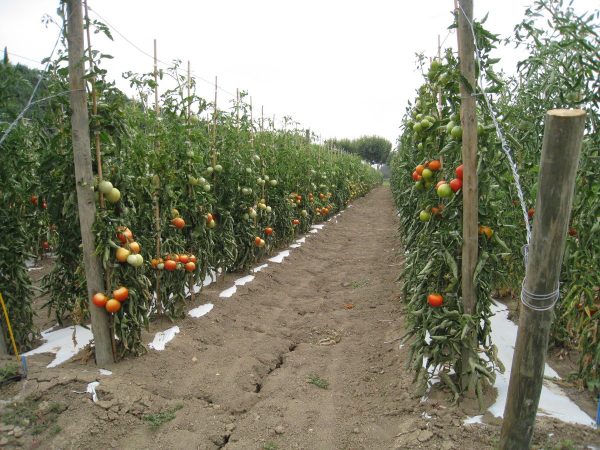
News from the CTPS Vegetable Section – 12/12/2022
The CTPS ‘Vegetable Species’ Section met on 12 December 2022 and validated the registration of nearly 140 varieties (138 varieties on list a and 2 on list d). A typical feature of the work of this Section was the diversity of species, vegetable typologies and users, which was once again reflected in discussions on disease resistance, one of the core issues in modern plant breeding, and in particular on how to take account of it in a way that is adjusted to the characteristics of this resistance and the needs of the vegetable industry. The other main point of the meeting concerned methods of communication regarding organic varieties adapted to organic production. This discussion was illustrated by an assessment of the 13 varieties proposed by breeders active on the organic market and studied at GEVES in 2022.
Despite sometimes complicated weather conditions during the 2022 season, all 285 varieties applying for registration in the Catalogue in 2022 were studied (volume of activity stable compared to the 2021 season). For the 140 varieties that finalised their DUS tests in the autumn of 2022, the Section validated their registration proposal, which will be effective in the first quarter of 2023. Around 100 other varieties will continue their DUS testing in 2023 and the Section meeting in March 2023 will process the 30 or so varieties whose DUS testing can be finalised in the first quarter of 2023.
In parallel with the vast majority of varieties registered on list a, the French Catalogue of vegetable varieties contains list d, which allows the registration of varieties mainly intended for self-consumption (amateur gardeners). Although its flow of registrations remains modest (on average 5 varieties per year), the d list remains a gateway to market recognition for the quality of maintenance and the varietal distinction of varieties created for amateurs. At this Section meeting, 2 tomato varieties were validated for listing. 1 cauliflower variety of the population type announced for organic production route is still being studied, in particular to examine its uniformity compared to that of the population varieties already regulated.
With regard to genetic resistance to diseases, some fifty species x pest pairs are tested by the SNES as part of vegetable DUS studies. The Section validated the addition of powdery mildew on courgettes (Podosphaera xanthii) for the 2023 season, making it possible to enhance the value of breeding work in the area of genetic resistance and to provide consolidated information to users. On the broader revision of the CTPS disease classification defined in its first version more than 15 years ago, the Section was informed of the work and discussions initiated by GEVES in order to put into perspective the genetic resistances worked on and put forward by breeders, the harmonised table of resistances defined by Euroseeds (HRT) and the information available on the presence of diseases in the field. In order to continue updating this CTPS classification, a prioritisation of the species x pest pairs to be integrated into this CTPS classification will be established according to several parameters, such as claims in a significant number of commercial catalogues, their simultaneous presence in the commercial catalogues and the HRT table, their level of pressure in the field, the varietal flow in the CTPS, the isogeny factor, the capacity of varietal distinction provided, the capacity to develop a test under controlled conditions, and the cost of a routine test.
Still in the field of genetic resistance to diseases, the Section was informed of the progress of the HarmoresColl project, a European portal of seed collections and strains used for carrying out harmonised tests between Examination Offices and breeders. The MATREF initiative supported by GEVES and CTPS will be the most important contributor to the European HarmoresColl portal and discussions are underway on the contributions of each partner to the long-term future of this portal for all stakeholders.
As regards organic farming, with the entry into force on 1 January 2022 of the European Regulation on organic farming, the Section was informed of the procedures for implementing a Temporary Experiment on two species (carrot and kohlrabi). The objective is to allow the registration of organic varieties suitable for organic farming (VBAPB) with an authorised adjustment of homogeneity. Despite a postponement of this Temporary Experimentation on VBAPBs until 01/07/23, several breeders involved in organic breeding have registered 13 varieties of 4 vegetable species (beetroot, carrot, broccoli and romanesco cabbage) for the 2022 campaign. Methodological work has been implemented in 2022 by GEVES for the examination of uniformity. This work will continue in 2023 and the years to come.
Finally, within the framework of the 2019-2024 SPAD Plan, the next meeting of the Section on 30/03/2023 will focus in particular on the organoleptic characterisation of vegetables and the varietal contribution to this component sought by consumers and, depending on the case, enhanced by the vegetable sectors.

